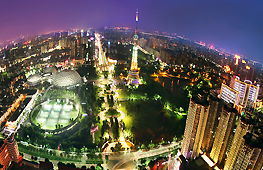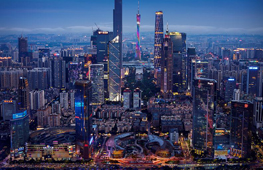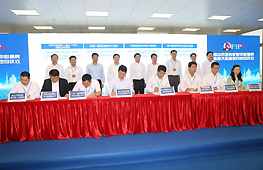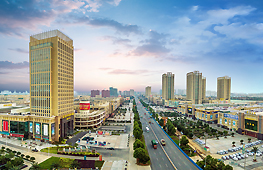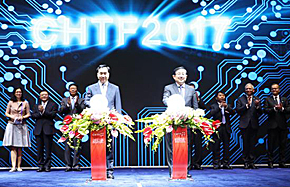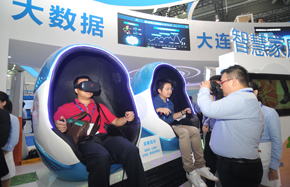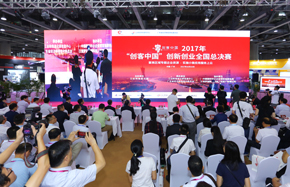Progress made in becoming sci-tech center
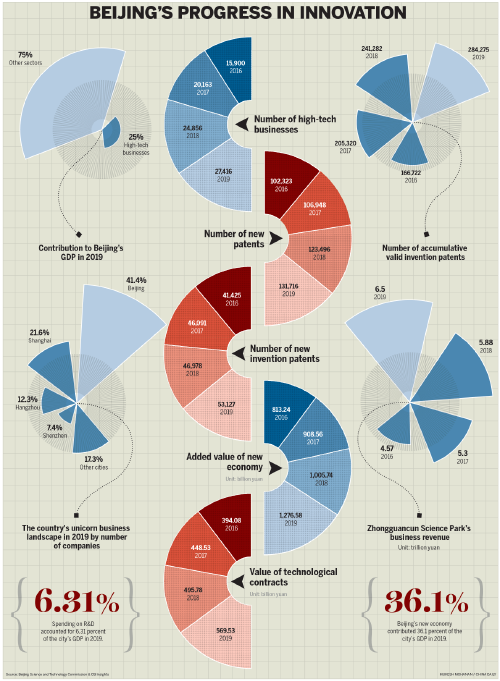 |
|
BEIJING'S PROGRESS IN INNOVATION MUKESH MOHANAN/CHINA DAILY |
Beijing has made significant progress over the past five years in building the city into a sci-tech innovation center, according to the Beijing Science and Technology Commission.
The Global Innovation Hubs Index 2020 released by the academic publisher Springer Nature and Tsinghua University in September, reported Beijing ranked fifth among 30 cities and metropolitan areas around the world.
Beijing attaches great importance to scientific and technological innovations and has seen continuous growth in its innovation capability, said officials from the Beijing Science and Technology Commission.
Beijing's expenditure on research and development reached 223.36 billion yuan ($33.97 billion) in 2019, accounting for 6.31 percent of the city's GDP. In the same year, the number of national-level high-tech enterprises across the city exceeded 27,000, an increase of about 70 percent from 2016.
Focusing on key industries such as information technology and life sciences, the city has built an array of research institutions including the Chinese Institute for Brain Research, Beijing and the Beijing Academy of Artificial Intelligence.
Beijing has also offered customized services to create an enabling environment for innovations, said local officials.
Research at the Beijing Academy of Artificial Intelligence focuses on mathematical foundations, machine learning, natural language processing, intelligent information retrieval and mining, intelligent architecture and chips, and neural basis for cognition.
The academy is preparing to launch new teams for research on decision intelligence and machine perception, and it supports both open and explorative research.
With an open resource system, an innovation center in the academy will encourage breakthroughs in core technologies and major creations of AI, as well as their applications.
The academy joined hands with a group of renowned universities, research institutes and a trade association to release the Beijing AI Principles in May 2019.
Integrating the traditional Chinese philosophy of harmonious coexistence and seeking cross-sector, multi-department global cooperation, the document contributes a Beijing solution for the AI sector's healthy growth, local officials said.
Megvii, a Beijing-based AI company, developed an AI-powered temperature inspection system in the early stage of the COVID-19 outbreak, which supports remote screening from more than 3 meters away and enables 15 people to be checked at the same time.
The system has been deployed in many airports, hospitals and supermarkets in major cities.
The tech startup set out from Zhongguancun, a high-tech business hub in the city. "We knew little about the market or capital and had to grope our way," said an executive at the company. "Fortunately, Zhongguancun has everything that we need for our company's growth."
Long Guilu's team from the Beijing Academy of Quantum Information Sciences announced the world's first prototype machine of quantum direct communication in September, paving the way for a more secure communication system.
Not just an ideal environment for domestic innovators, Beijing is committed to attracting foreign enterprises and promoting international cooperation in the high-tech field.
By the end of 2019, Beijing was home to more than 560 foreign-funded research institutions.
Many cross-border projects such as Intel's open innovation hub and the China-Italy innovation center were launched in Beijing.
These prosperous high-tech industries have become an important driver of the city's economic growth, said Xu Qiang, director of the Beijing Science and Technology Commission.
Based on the remarkable progress, Beijing will continue its efforts to build a sci-tech innovation center with global influence.
Xu said one of the major tasks in 2020 is to advance the development of the city's major innovation facilities-"three cities and one area".These are Zhongguancun Science City, Beijing Future Science Park in Changping district, Huairou Science City in Miyun and Huairou districts and the Beijing Economic-Technological Development Area.
Zhongguancun Science City, Huairou Science City, Future Science City and the Beijing Economic-Technological Development Area, also known as Beijing ETown, as well as a demonstration zone for innovative industrial clusters in Shunyi district, focusing on intelligent vehicles, the third-generation semiconductors, and the aerospace sector, have developed into the pinnacle of Beijing's innovation and provided a major framework for the city's drive to build itself into a science and technology center.
zhanglinwan@chinadaily.com.cn






